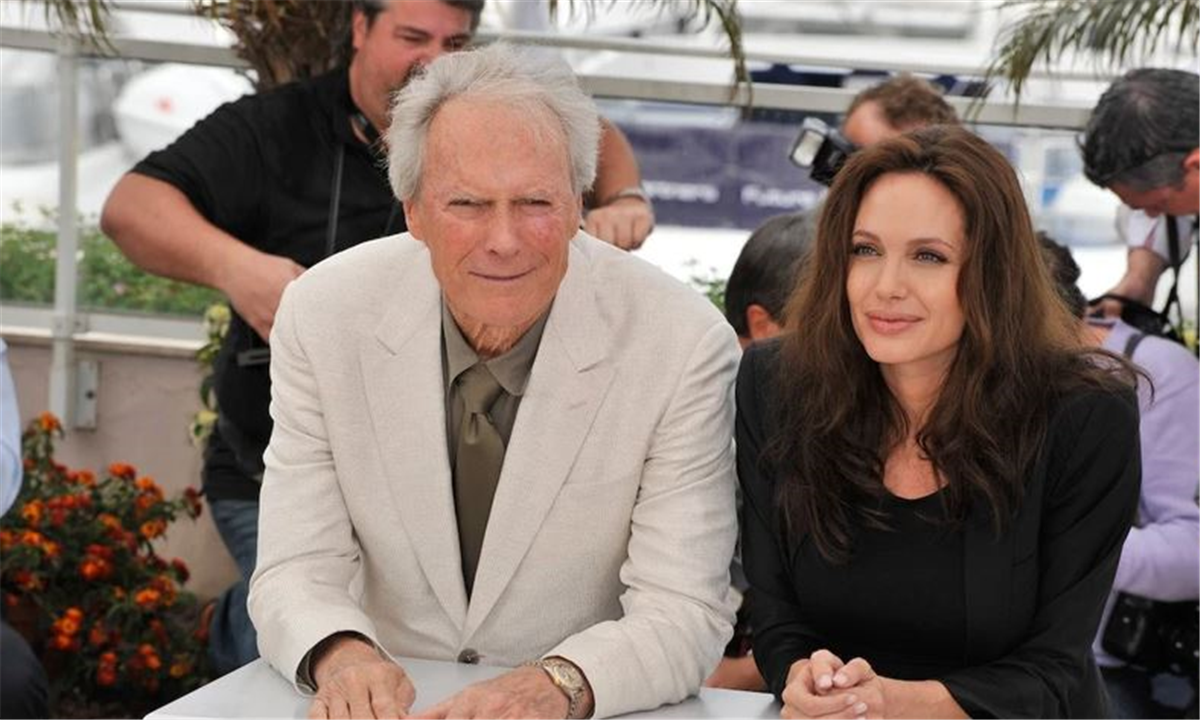It’s safe to say that Changeling isn’t an easy watch for anyone, but it was equally taxing for some of the cast — Angelie Jolie in particular. Under Clint Eastwood’s direction, the film delivers a haunting narrative that explores one of 1920s Los Angeles’ darkest chapters. Based on the tragic, true story of Christine Collins, Changeling is about a mother who’s on a relentless quest to find her missing son. Rather than getting help and support from an institution that was created to do just that, she comes face-to-face with corruption and deception from the LAPD. Jolie’s portrayal of Christine is authentic and powerful, as she captured the essence of a woman fighting a system that was bent on suppressing her voice. A performance that emotionally charged no doubt takes a toll on the actors themselves, with Jolie even referring to it as one of the most painful roles of her career.
It’s worth adding that behind Angelina Jolie’s riveting performance was Clint Eastwood’s brilliant direction. With his penchant for balancing intimate human stories with social critique, he used Christine’s struggle to dive into themes of justice and resilience. At the end of the day, the result of their collaboration kept viewers focused on what really mattered — the emotional weight of the story.
Clint Eastwood Helped Angelina Jolie Through Her Emotionally Taxing Performance in ‘Changeling’

It’s easy to dismiss how much a role can take a toll on an actor, but the impact is real. From Anne Hathaway’s Fantine in Les Misérables to Janet Leigh’s Marion Crane in Psycho, actors have been quite vocal about the roles that chipped away at parts of them. For Angelina Jolie, that role was Changeling’s Christine Collins; however, Eastwood’s approach to directing was one of the things that helped her through it. Mostly known for his fast-paced, efficient approach, he created an environment on set where Jolie could dive into the character without the physical and emotional exhaustion that comes with endless retakes.
As Jolie revealed in an interview, “There have been so many times I’ve worked on films that have required a lot of emotion and a director that didn’t understand it. You’d start the scene and do ten takes…with Clint, you just lay it out for him, and he’ll get it.” Overall, it was Eastwood’s willingness to let the actress be vulnerable and raw in her performance that prevented her from burning out. Being a mother herself, Jolie admitted that this role hit close to home. Imagining the pain of losing a child, especially the helplessness Christine felt, made the experience even more personal. In her words, “It doesn’t get easier… the loss of a child — and not even knowing where they are — is probably the absolute worst thing in the world… so this film was very, very painful.” No doubt, this pain lent itself to her performance, making it tug at the heartstrings even more.
The Real Events in ‘Changeling’ that Inspired the Film

When real life meets Hollywood, it’s easy for the filmmakers to go overboard with the story. However, this is one of those instances where the true story is as harrowing — if not more — than the Hollywood depiction. Back in 1928, a supervisor at a telephone company, Christine Collins, came face-to-face with every parent’s worst nightmare. Her nine-year-old son, Walter Collins went to the movies and never came back. What came next wasn’t just a search for the boy, but a dive into the systemic corruption of the LAPD.
Since the case was such a high profile one and a fire was lit under them, the LAPD hustled and returned a boy to Collins five months down the line. The Hollywood-esque twist here is that he wasn’t her son. But, rather than owning up to their mistake, they basically gaslighted her and tried to convince her to go with it. With the LAPD Capt. J.J. Jones even saying she should “try the boy out.” Her protests only made them buckle down, and she was then committed to a mental institution. It’s safe to say that Eastwood’s work in Changeling flawlessly nailed the tension and highlighted just how cold the system can be.
Christine Collins was only released after the boy — Arthur Hutchins — confessed that the police told him to pretend to be Christine’s son. Unfortunately, the whole ordeal was crowned with the revelation that Walter was taken by Gordon Stewart Northcott, a serial killer. Sadly, Christine’s son was never found. Through Eastwood’s subtle and calculated direction, Changeling takes this personal tragedy and turns it into a moving critique of the corruption in 1920s L.A. Even more, he showed us exactly how far a mother would go for the truth.
